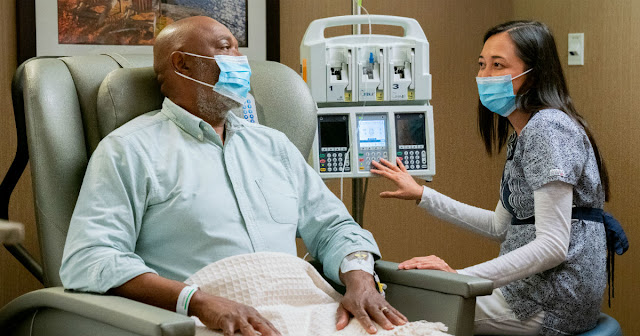"Focal Segmental Glomerulosclerosis: Understanding the Market Landscape"
Focal Segmental
Glomerulosclerosis (FSGS) is a rare and complex kidney disorder that affects
both children and adults. This condition is characterized by scarring of the
glomeruli, the tiny filters in the kidneys responsible for removing waste and
excess fluid from the blood. As the prevalence of FSGS continues to rise, it
has drawn attention to the FSGS market, which encompasses various aspects such
as diagnosis, treatment, and research. In this blog, we will explore Focal
Segmental Glomerulosclerosis Market to better understand the challenges and
opportunities it presents.
Diagnosis
Accurate and timely
diagnosis is crucial in managing FSGS. Currently, the diagnosis of FSGS
involves a combination of medical history, physical examination, blood tests,
urine tests, and kidney biopsy. The market for FSGS diagnosis primarily
comprises diagnostic laboratories, imaging centers, and healthcare providers.
As awareness of FSGS grows, there is an increasing demand for improved
diagnostic tools and techniques, which is driving innovation and investment in
this segment.
Treatment
Managing FSGS is complex
and often requires a multi-faceted approach. The FSGS treatment market
encompasses a range of therapies aimed at slowing the progression of kidney
damage, alleviating symptoms, and preventing complications. Common treatments
include angiotensin-converting enzyme (ACE) inhibitors, angiotensin II receptor
blockers (ARBs), immunosuppressive medications, and lifestyle modifications.
The market for FSGS treatments is witnessing advancements in drug development
and targeted therapies, offering hope for better outcomes for patients.
Research and
Development
The FSGS market is
closely tied to ongoing research and development efforts. Researchers are
continually investigating the underlying causes of FSGS, including genetic and
environmental factors. This research not only enhances our understanding of the
condition but also drives the development of novel therapies. The
pharmaceutical industry is actively engaged in clinical trials and drug
discovery efforts to find more effective treatments for FSGS, creating a
dynamic and evolving market landscape.
Patient Advocacy
and Support
FSGS is a
challenging condition that affects not only the physical health of patients but
also their emotional well-being. Patient advocacy groups and support networks
play a crucial role in the FSGS market. These organizations provide
information, resources, and a sense of community for individuals and families
dealing with FSGS. Their efforts contribute to raising awareness, driving
research funding, and improving the overall quality of life for FSGS patients.
Challenges in the
FSGS Market
While there are
promising developments in the FSGS market, several challenges persist. These
include:
1. Limited
Treatment Options: Current treatments for FSGS are not always effective, and
some patients may progress to end-stage renal disease, necessitating dialysis
or transplantation.
2. High
Healthcare Costs: The long-term management of FSGS can be financially
burdensome for patients and healthcare systems.
3. Limited
Awareness: FSGS remains relatively unknown compared to other kidney diseases,
leading to delayed diagnosis and treatment.
4. Variability
in Disease Presentation: FSGS can present differently in individuals, making it
a challenging condition to diagnose and treat effectively.
Conclusion
The
Focal Segmental Glomerulosclerosis market is evolving to address the needs
of patients, healthcare providers, and researchers. Advances in diagnosis,
treatment options, and ongoing research offer hope for improved outcomes and a
better quality of life for those affected by FSGS. However, addressing the
challenges in this market, such as limited treatment options and high
healthcare costs, remains a priority. Increased awareness and collaboration
within the medical community, along with continued research efforts, will be
essential in tackling these challenges and improving the outlook for FSGS
patients.
Read More….




Comments
Post a Comment